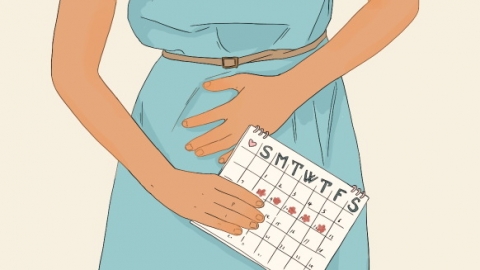Can taking birth control pills cause a delayed menstrual period?
Generally speaking, whether taking contraceptive pills will delay menstruation depends on the specific circumstances. Taking short-acting contraceptive pills regularly usually does not cause menstrual delay; however, missing a dose of the short-acting pill or taking emergency contraceptive pills may interfere with hormone levels, potentially leading to delayed menstruation. The detailed explanation is as follows:

If short-acting contraceptive pills are taken regularly as directed in the instructions, the medication will stabilize estrogen and progesterone levels in the body, causing the endometrium to shed periodically. The menstrual cycle typically becomes regular and delayed periods generally do not occur. Some individuals may even experience improved menstrual regularity after starting the pill, especially if their cycles were previously irregular.
When a dose of the short-acting contraceptive pill is missed or emergency contraceptive pills are taken, menstrual delay may occur. Missing a dose can cause hormonal fluctuations, affecting the normal shedding of the endometrium; emergency contraceptive pills contain high doses of hormones that rapidly disrupt ovulation and hormonal balance, disturbing the normal menstrual cycle and potentially causing either early or delayed menstruation.
Short-acting contraceptive pills should be taken daily at a fixed time to avoid missed doses. After taking emergency contraception, it is important to monitor the menstrual cycle, reduce the frequency of using emergency contraceptive pills, maintain a regular lifestyle, avoid staying up late, and eat a balanced diet to help maintain hormonal stability and menstrual health.




